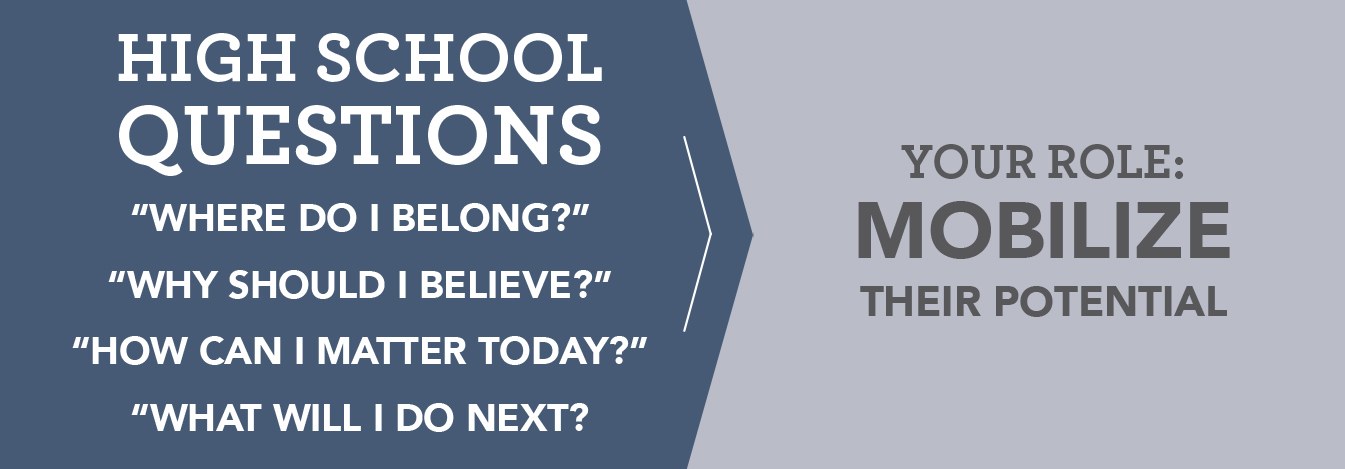The parenting game changes as your kids get older. When they are preschoolers, parenting is physically demanding. There’s the lack of sleep, holding them, rocking them, changing diapers, picking up sippy cups, feeding them. When your child goes to elementary school, your role is a little less physical, but they are still very hungry for attention. In middle school, kids need a steady presence to offset their rollercoaster of emotions. As they become more independent, your role shifts from physical to mental. Teenagers don’t need as much physical help as they do coaching and cultivating.
High schoolers think like a philosopher. They want to discover meaning and learn best by processing out loud. You can expect a quiet house during the day and evenings, but be prepared for lengthy late night chats. While they are out with friends or at their first job, they are asking some pretty big questions.
In ninth grade, friendships are shifting and interests are changing quickly. This is when grades really start counting. They can feel a lot of pressure and are asking, “Where do I belong?” The goal for your parenting during this phase is to teach them to value community.
For tenth graders, teens are comparing themselves to their peers. You’ll get very familiar with which friends are allowed to do which things. Your teen will push you to question your rules and boundaries. Be intentional about clarifying values. Spiritually, this is a phase of doubt and questioning. Teens around this age are asking, “Why should I believe?”
You can expect a little less drama and a little more stress in eleventh grade. Your teenager is busier than you are, with their own social calendar. They will assure you they can be trusted. During this phase, focus on refining their skills. Their biggest question is, “How can I matter?”
The last year of high school is when you realize how little time you have left and how much you still need to teach. You become aware that you’re experiencing their ‘lasts’, similar to when you realized your baby wasn’t a baby anymore. You’ll have countless conversations about what comes next. The question they are asking deep down is, “What will I do?” They may feel pressure to have their future figured out, so the best parenting strategy during this phase is to help them create vision for their life.
What your teenager needs most from you is availability. They won’t always want to talk when you do, but you can be available to talk when they are. Focus your parenting on mobilizing their faith so they will keep pursuing authentic faith and discover a personal mission.

*We are a church located in Greenville, South Carolina. Our vision is to see God transform us into a community of grace passionately pursuing life and mission with Jesus.*
Connect With Us